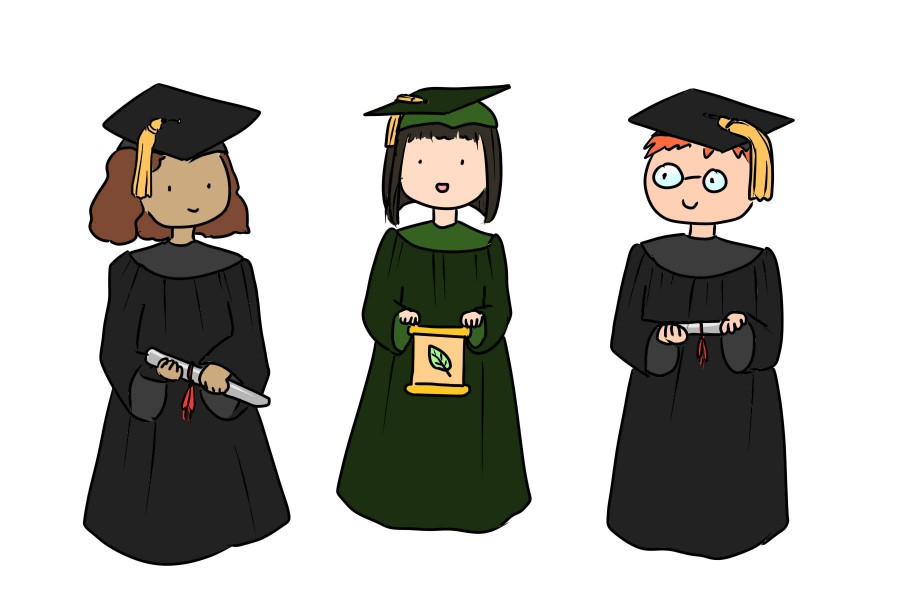Sustainability major in the works
March 11, 2016
EWU’s annual Campus Sustainability Forum hit a record low in attendance: 30 people.
EWU senior Gwen Bode, biology major and sustainability club member, said the vacancy of student demand and interest in sustainability efforts made by departments on campus is due to a distant and unorganized administration.
“There’s just not a lot of direction from the administration on how students can get involved,” Bode said. Bode is in her final year at EWU and said she wants to know how to help further Eastern’s commitment to on-campus sustainability but did not know how until this year.
Biology professor Robin O’Quinn, Ph.D. and an active member in EWU’s sustainability community, said she attributes the lack of student presence at the sustainability forum and in campus eco-efforts to a non-existent core program that would center all Eastern’s contributing departments into one easily-accessible area for students. “Dining Services and Facilities Services, as well as Business and Finance have been active participants in campus sustainability for many years,” said O’Quinn. “They’re just missing the student component.”
Among the wealth of sustainability-related topics presented at the forum on Feb. 24, the idea of establishing an undergraduate major in sustainability to re-organize campus eco-practices, energize student involvement and help accredit Eastern as a regional leader in sustainability was a focal point.
Presented by O’Quinn, the comprehensive undergraduate major would be a potential answer to the lack of sustainability programs for undergraduate freshman and transfer students in the Northwest as well as the absence of student interest at EWU.
“No other public university in Washington state offers a major in sustainability,” said O’Quinn. “There’s a large, growing population of students coming into public institutions that are seeking this type of training, and it’s not available.”
Departmental activity in sustainability on campus began in 1989 with the first-ever recycling program in Facilities Services. “We’ve been doing it ever since,” said Scott Buck, transportation and solid waste recycling supervisor.
The recycling program has now expanded to a compostable system for food as well as some garbage materials. All paper and plastic utensils, plates, bowls, boxes and even garbage bags in dining areas are sugar- and cornstarch-based, which makes them suitable for composting.
Groundwater reclamation is a sustainability project Facilities Services is currently trying to implement all over campus to reduce the amount of water drawn from city sources. The reclamation is only active in and around Patterson Hall. A reservoir tank between Patterson and Monroe Halls collects the water so it can be used in later irrigation efforts.
“If we used the existing groundwater we wouldn’t have to tap into our domestic supply, it would just be reused water, which is our goal,” Karen Wichman, director of Facilities Services said. Wichman said there is currently a plan in place to expand the water reclamation system campus-wide, but they are still in the testing stages with Patterson’s system.
Even without an organized center of sustainability at EWU, Facilities Services has tried to engage students by sponsoring sustainability events like the zero waste game day challenge, recyclemania and Earth Day celebrations. But even with those events in place, Buck said he still notices a stagnant student interest in recycling and sustainable practices on campus.
“We just don’t meet at the same level,” Buck said. He attributes the lack of student involvement to the absence of an established formal head of sustainability on Eastern’s campus, as well as a disconnect in marketing sustainability events to students.
“There is a small pocket of students who are interested and then there is a closed pocket that would care if we could reach them,” Buck said. He said he agrees there just is not a central hub to get the message out to students across all channels.
Looking to the future of EWU sustainability, Bode said she hopes Eastern will try to pursue establishing the sustainability major to help get students involved.
“If we were to really get a sustainability major, it would allow us students to organize together and have staff advisers who could be involved with us,” Bode said.







